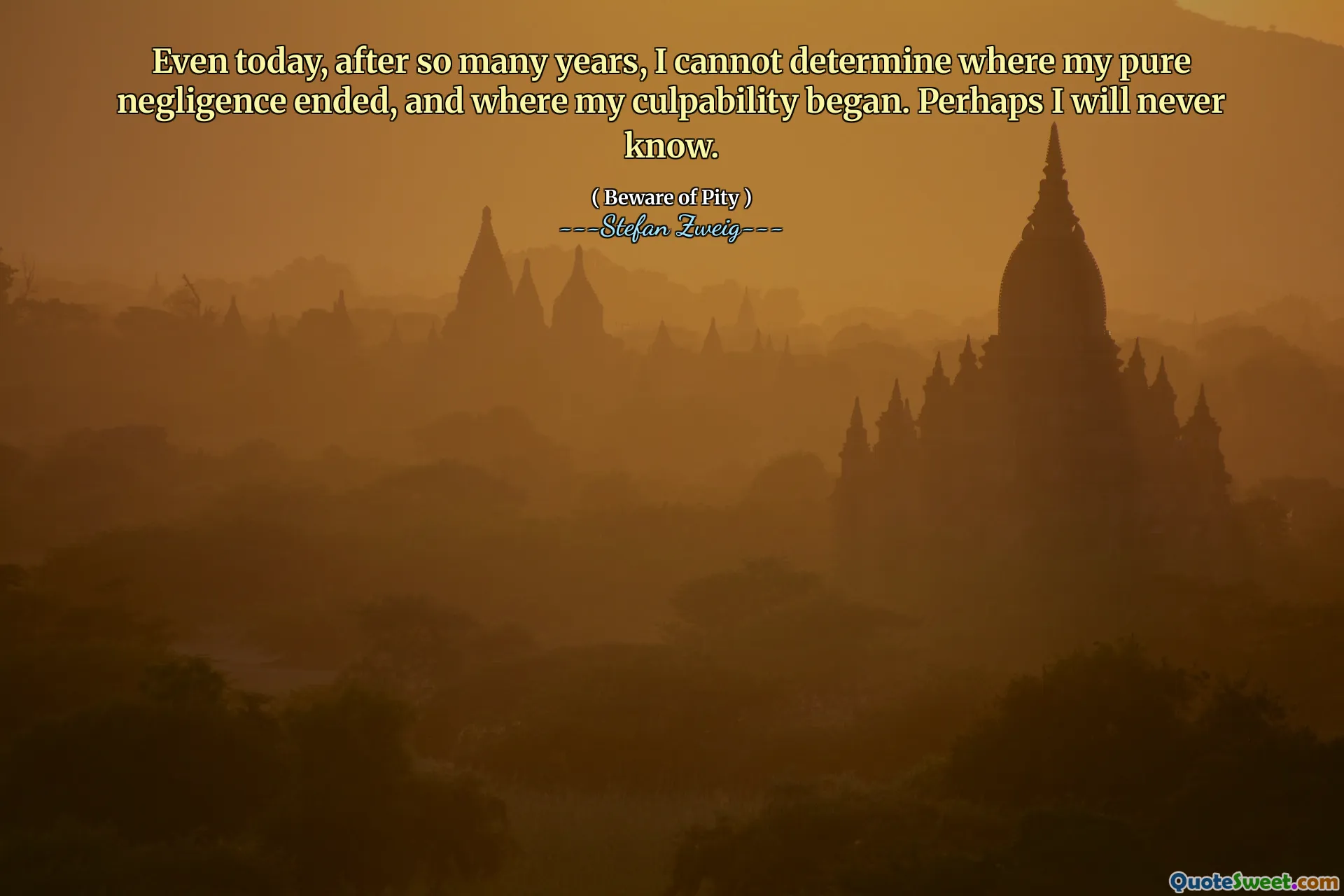
Even today, after so many years, I cannot determine where my pure negligence ended, and where my culpability began. Perhaps I will never know.
This quote evokes a profound sense of introspection and the enduring human struggle to discern the boundaries between innocence and responsibility. It highlights how, over time, the lines separating accidental mistakes from intentionally wrong actions can blur, causing individuals to question the very nature of their choices. This reflection resonates deeply with the universal experience of ethical ambiguity, reminding us that self-awareness is often an ongoing, imperfect journey.
The sentiment reminds us that human memory and perception are inherently fallible. As years pass, justifying or evaluating past actions becomes increasingly complex, and one might find oneself trapped in a fog of doubt about the motives and circumstances that led to certain behaviors. This can evoke feelings of regret, confusion, or acceptance — acknowledging the difficulty of assigning clear blame.
From a philosophical perspective, the quote prompts consideration of moral responsibility. Are we ultimately accountable for actions born out of negligence, or are such actions an inevitable part of human imperfection? The idea that one might never know the true origins of their own culpability suggests a humbling acknowledgment of human limitations and the complexity of moral judgment.
In life, many face similar questions about accountability, especially in situations mired by ambiguity or emotional turmoil. It underscores the importance of self-awareness and continuous moral reflection, yet also accepts that some ambiguities might remain unresolved forever. Such acceptance can foster humility and a gentler understanding of ourselves and others.
Overall, this quote encapsulates the intricate and sometimes elusive nature of human conscience, urging us to accept the complexities of our moral landscape with honesty and humility.






